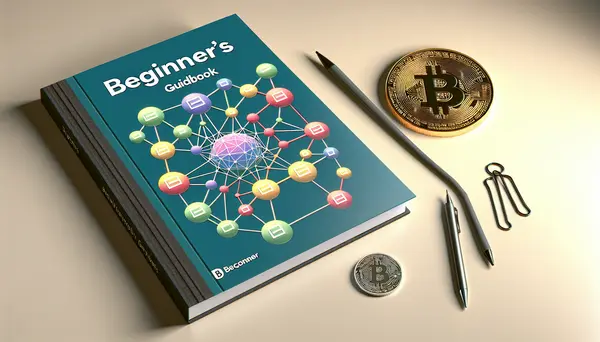Posts on the Topic Advanced Investment Concepts

The article explains the differences and connections between blockchain and cryptocurrency, highlighting that while blockchain is a decentralized digital ledger with applications beyond finance, cryptocurrencies are digital currencies relying on blockchain for secure transactions. It also discusses how blockchain supports...

The article introduces blockchain technology and guides readers on building a simple blockchain using Python, covering essential concepts like distributed ledgers, blocks, cryptographic hashes, consensus mechanisms, and mining. It also provides steps for setting up the Python environment and installing...

The UK is positioning itself as a global hub for blockchain and cryptocurrency through proactive government initiatives, evolving regulations, and the establishment of a Taskforce to coordinate efforts. The regulatory framework balances innovation with consumer protection by addressing money laundering...

Blockchain technology enhances the security and integrity of intellectual property (IP) by providing decentralized, immutable records, timestamping, smart contracts for automated enforcement, and verifiable proof of ownership. Successful implementations like IP-Hour, Ascribe, Verisart, and DEIP demonstrate blockchain's effectiveness in protecting...

Blockchain voting systems leverage the decentralized and transparent nature of blockchain technology to enhance security, transparency, and accessibility in elections by providing an immutable ledger for votes. Despite their potential benefits, these systems face challenges such as scalability issues, voter...

Decentralized Finance (DeFi) on Solana leverages the blockchain's high throughput, low fees, and scalability to offer efficient financial services like lending, borrowing, trading, and staking without traditional intermediaries. Despite challenges such as network congestion and security concerns, Solana's innovative technology...

DeFi farming, or yield farming, allows users to earn rewards by providing liquidity to decentralized platforms through depositing cryptocurrencies into liquidity pools used for trading and lending. Key components include liquidity pools, smart contracts, governance tokens, staking, and yield aggregators;...

Decentralized Finance (DeFi) offers innovative financial systems but comes with risks such as smart contract vulnerabilities, liquidity issues, market volatility, and regulatory uncertainties. To mitigate these risks, investors should engage in projects with audited contracts, diversify investments, stay informed about...

The article explores the rapid growth of decentralized finance (DeFi), driven by factors like increased adoption, innovative financial products, and accessibility. It also highlights key DeFi platforms such as Uniswap, Aave, Compound, MakerDAO, SushiSwap, and Yearn.Finance that offer diverse services...

Decentralized Finance (DeFi) platforms are transforming the financial sector by eliminating intermediaries and enabling peer-to-peer transactions through blockchain technology, offering services like lending, borrowing, trading, and staking via smart contracts. Key features of DeFi include decentralization, transparency, interoperability, programmability, permissionless...

The article explores the transformative impact of Decentralized Finance (DeFi) on traditional financial systems through innovative projects that offer accessible, transparent, and efficient services. It highlights key features such as smart contracts, interoperability, yield farming, governance tokens, Layer 2 solutions,...

DeFi (Decentralized Finance) operates without traditional intermediaries using blockchain technology, offering services like lending and trading in a decentralized manner, while CeFi (Centralized Finance) involves financial institutions managing transactions under regulatory oversight. The article explores the differences between DeFi's permissionless...

The article discusses the rise and impact of DeFi (decentralized finance) apps, which operate on blockchain technology to provide financial services without traditional intermediaries like banks. It covers their evolution from Bitcoin's inception in 2009 to Ethereum's smart contracts, categorizes...

The DeFi ecosystem leverages blockchain technology to create decentralized, transparent, and automated financial markets that are accessible globally without intermediaries. Key components include cryptocurrencies, tokenized assets, smart contracts, data oracles, and human governance; notable applications like MakerDAO and Compound demonstrate...

Decentralized Finance (DeFi) is transforming passive income generation by leveraging blockchain technology to offer innovative methods such as liquidity provision, staking, yield farming, and lending. These DeFi activities eliminate intermediaries through smart contracts, providing global accessibility and transparency while offering...

DeFi, or decentralized finance, leverages blockchain technology to recreate traditional financial systems without intermediaries, using smart contracts on networks like Ethereum for increased accessibility and transparency. Key components include DApps, decentralized exchanges (DEXs), lending platforms, stablecoins, yield farming mechanisms, and...

Decentralized Finance (DeFi) is reshaping the financial landscape by offering open, unrestricted access to financial products and services without the need for traditional intermediaries. It operates on blockchain technology, providing security, transparency, and accessibility to all. DeFi allows for the...

The article explains the differences and connections between blockchain and cryptocurrency, highlighting that while blockchain is a decentralized digital ledger with applications beyond finance, cryptocurrencies are digital currencies relying on blockchain for secure transactions. It also discusses how blockchain supports...

The article introduces blockchain technology and guides readers on building a simple blockchain using Python, covering essential concepts like distributed ledgers, blocks, cryptographic hashes, consensus mechanisms, and mining. It also provides steps for setting up the Python environment and installing...

The UK is positioning itself as a global hub for blockchain and cryptocurrency through proactive government initiatives, evolving regulations, and the establishment of a Taskforce to coordinate efforts. The regulatory framework balances innovation with consumer protection by addressing money laundering...

Blockchain technology enhances the security and integrity of intellectual property (IP) by providing decentralized, immutable records, timestamping, smart contracts for automated enforcement, and verifiable proof of ownership. Successful implementations like IP-Hour, Ascribe, Verisart, and DEIP demonstrate blockchain's effectiveness in protecting...

In the digital age, securing cryptocurrency assets is crucial due to vulnerabilities in blockchain wallets. Regular checks of your wallet's address, transactions, and security features can prevent unauthorized access and ensure peace of mind....

Blockchain voting systems leverage the decentralized and transparent nature of blockchain technology to enhance security, transparency, and accessibility in elections by providing an immutable ledger for votes. Despite their potential benefits, these systems face challenges such as scalability issues, voter...

Decentralized Finance (DeFi) on Solana leverages the blockchain's high throughput, low fees, and scalability to offer efficient financial services like lending, borrowing, trading, and staking without traditional intermediaries. Despite challenges such as network congestion and security concerns, Solana's innovative technology...

DeFi farming, or yield farming, allows users to earn rewards by providing liquidity to decentralized platforms through depositing cryptocurrencies into liquidity pools used for trading and lending. Key components include liquidity pools, smart contracts, governance tokens, staking, and yield aggregators;...

Decentralized Finance (DeFi) offers innovative financial systems but comes with risks such as smart contract vulnerabilities, liquidity issues, market volatility, and regulatory uncertainties. To mitigate these risks, investors should engage in projects with audited contracts, diversify investments, stay informed about...

DeFi staking allows users to lock up cryptocurrency assets in blockchain networks to earn rewards while helping secure the network, offering various methods such as fixed and dynamic staking, yield farming, liquidity mining, governance staking, and DAO staking. This guide...

The article explores the rapid growth of decentralized finance (DeFi), driven by factors like increased adoption, innovative financial products, and accessibility. It also highlights key DeFi platforms such as Uniswap, Aave, Compound, MakerDAO, SushiSwap, and Yearn.Finance that offer diverse services...

Decentralized Finance (DeFi) platforms are transforming the financial sector by eliminating intermediaries and enabling peer-to-peer transactions through blockchain technology, offering services like lending, borrowing, trading, and staking via smart contracts. Key features of DeFi include decentralization, transparency, interoperability, programmability, permissionless...

The article explores the transformative impact of Decentralized Finance (DeFi) on traditional financial systems through innovative projects that offer accessible, transparent, and efficient services. It highlights key features such as smart contracts, interoperability, yield farming, governance tokens, Layer 2 solutions,...

DeFi (Decentralized Finance) operates without traditional intermediaries using blockchain technology, offering services like lending and trading in a decentralized manner, while CeFi (Centralized Finance) involves financial institutions managing transactions under regulatory oversight. The article explores the differences between DeFi's permissionless...

The article discusses the rise and impact of DeFi (decentralized finance) apps, which operate on blockchain technology to provide financial services without traditional intermediaries like banks. It covers their evolution from Bitcoin's inception in 2009 to Ethereum's smart contracts, categorizes...

The DeFi ecosystem leverages blockchain technology to create decentralized, transparent, and automated financial markets that are accessible globally without intermediaries. Key components include cryptocurrencies, tokenized assets, smart contracts, data oracles, and human governance; notable applications like MakerDAO and Compound demonstrate...

DeFi Mining, also known as decentralized finance mining or yield farming, involves contributing cryptocurrency assets to DeFi protocols on blockchain networks to earn rewards like additional tokens or transaction fees. This process supports the liquidity and efficiency of these financial...

Decentralized Finance (DeFi) is transforming passive income generation by leveraging blockchain technology to offer innovative methods such as liquidity provision, staking, yield farming, and lending. These DeFi activities eliminate intermediaries through smart contracts, providing global accessibility and transparency while offering...

DeFi yield strategies involve using decentralized finance platforms to maximize returns on crypto assets through methods like lending, staking, and liquidity provision. While these strategies offer high potential returns and flexibility, they also come with risks such as volatility, smart...

DeFi airdrops are methods used by decentralized finance projects to distribute free tokens, promoting new initiatives and rewarding users. To participate, follow DeFi projects on social media, use compatible wallets like MetaMask or Trust Wallet, meet eligibility criteria, complete required...

DeFi, or decentralized finance, leverages blockchain technology to recreate traditional financial systems without intermediaries, using smart contracts on networks like Ethereum for increased accessibility and transparency. Key components include DApps, decentralized exchanges (DEXs), lending platforms, stablecoins, yield farming mechanisms, and...

Decentralized Finance (DeFi) is reshaping the financial landscape by offering open, unrestricted access to financial products and services without the need for traditional intermediaries. It operates on blockchain technology, providing security, transparency, and accessibility to all. DeFi allows for the...
Unsere Beiträge zum Thema Advanced Investment Concepts
Explore the depths of Advanced Investment Concepts within the cryptocurrency and blockchain realm on this comprehensive resource page. Here, you will find a wealth of articles that delve into sophisticated investment strategies, intricate market analysis, and the cutting-edge financial instruments reshaping asset management in the digital age.
Understanding Advanced Investment Concepts is pivotal for navigating the volatile and often complex cryptocurrency markets. Our focused content aims to equip you with the insights needed to make informed decisions about your digital asset portfolio. Whether you're a seasoned investor or new to the space, the knowledge garnered from these articles can empower you to stay ahead of the curve.
Embrace the potential of blockchain technology and its impact on investment paradigms by diving into topics that cover everything from decentralized finance (DeFi) to tokenized assets and beyond. The articles under Advanced Investment Concepts are meticulously curated to enhance your comprehension of high-level investment tactics and how they apply to the burgeoning world of cryptocurrencies.
By engaging with the content presented here, you stand to gain a competitive edge in your investment endeavors. Benefit from a diverse range of perspectives and expert analyses aimed at crystalizing the complex mechanisms of cryptocurrency investments. The Advanced Investment Concepts category is your stepping stone to becoming a more astute and tactical investor in the digital era.





